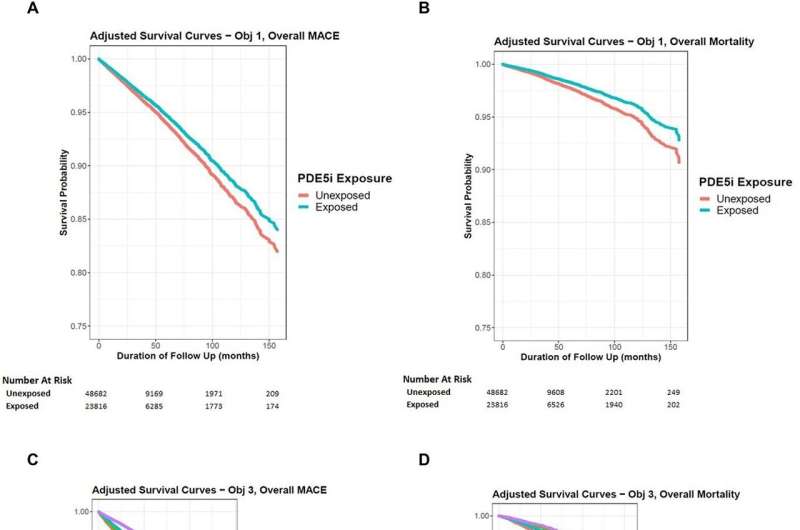
A comprehensive research study manuscript examining the impact of erectile dysfunction drugs on major adverse cardiovascular events (MACE) and mortality has been published in The Journal of Sexual Medicine by scientists from Huntington Medical Research Institutes (HMRI) in Pasadena, HealthCore Inc. and the University of California San Francisco.
This study marks a significant medical milestone, as it’s the first time the association between the use of PDE-5i drugs and cardiovascular health has been explored in a large population of relatively low-risk men with ED in the United States.
In this study, scientists analyzed health records of more than 70,000 men with ED. According to the findings of this large-population study, men who took Viagra, Cialis, Levitra and other drugs of the same class for erectile dysfunction (ED) experienced lower rates of major adverse cardiovascular events (MACE) including lower rates of heart failure and death due to heart disease compared to other men with ED not exposed to these drugs.
Among the men who took PDE-5i medications for ED compared to men with ED who did not take these drugs, Kloner’s study identified:
- 39% lower rate of death due to heart disease,
- 22% lower rate of unstable angina,
- 17% lower rate of heart failure,
- 15% lower rate in the need for revascularization procedures such as angioplasty, stenting and bypass surgery,
- 13% lower rate of MACE, and
- 25% lower rate of death due to any cause.
Principal investigator Robert A. Kloner, MD, Ph.D., chief science officer and scientific director of cardiovascular research at HMRI, and Professor of Medicine at the Keck School of Medicine of University of Southern California, and his co-investigators—Julia E. Bradsher of HMRI; Eric Stanek, Christopher L. Crowe, Mukul Singhal, and Rebecca S. Pepe of HealthCore Inc.; and Raymond Rosen of University of California San Francisco—drew anonymized patient records from a large U.S. commercial and Medicare insurance claims database. The study examined records over approximately 14 years.
The overall benefit in reduction of cardiac events was observed in men who also had risk factors for cardiovascular disease including diabetes. Due to the retrospective nature of the study, the research team cannot say anything about the cause of the benefit, only that there was an association between the exposure to PDE 5 inhibitors and lower rates of cardiovascular events. These results raise the possibility that the PDE5 inhibitors may have cardioprotective properties. Large scale prospective, placebo controlled, randomized clinical trials are needed.
Huntington Medical Research Institutes

